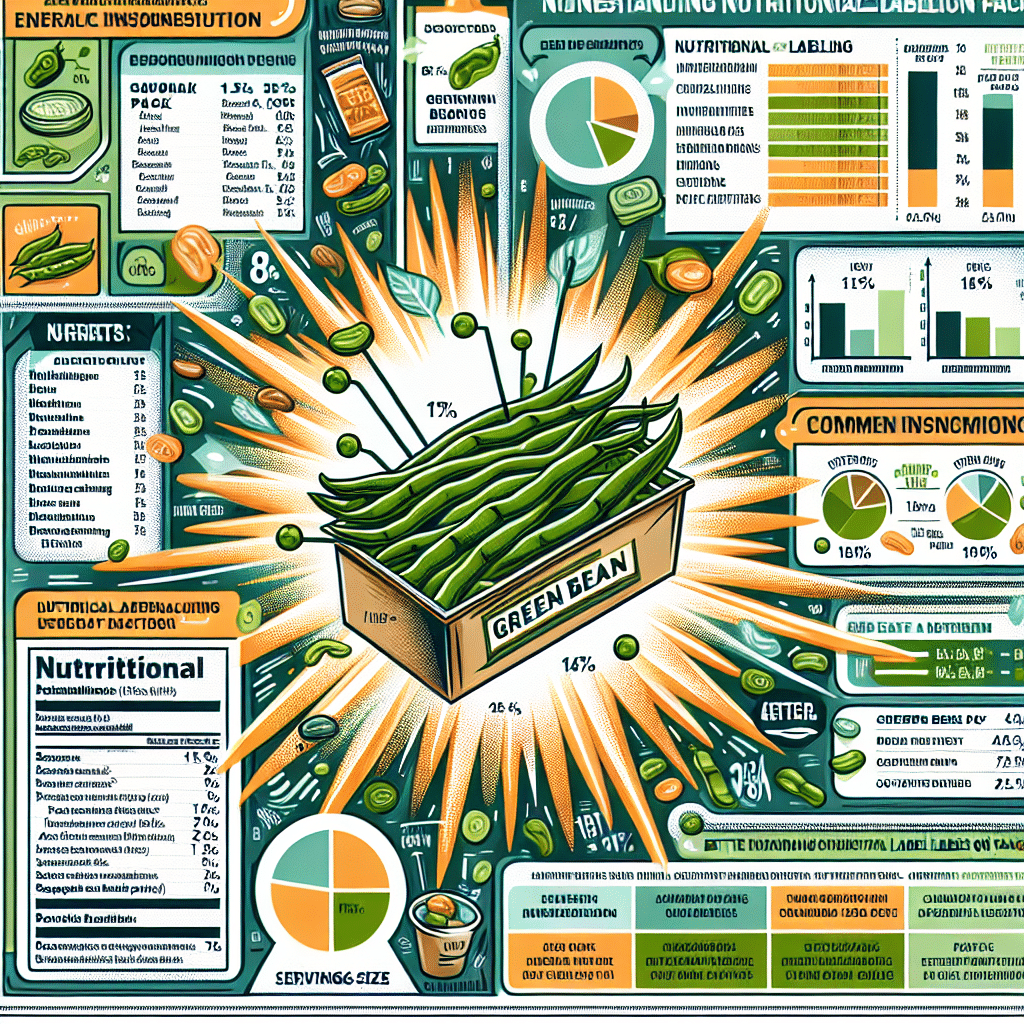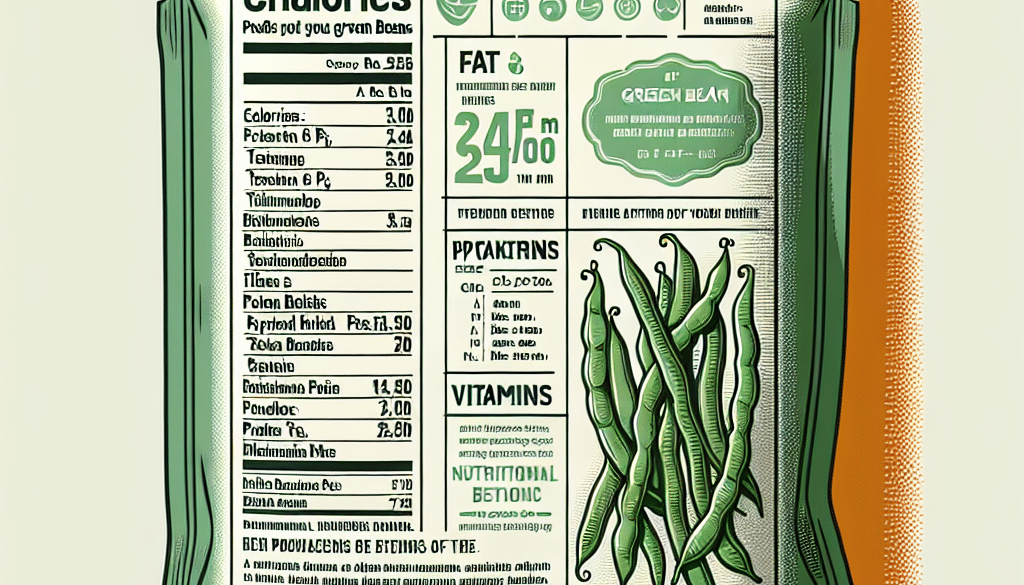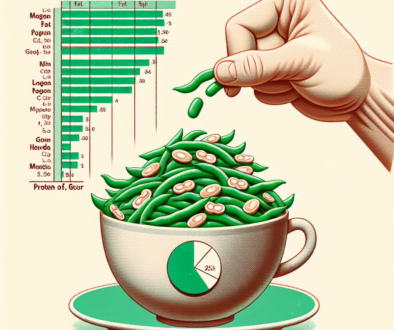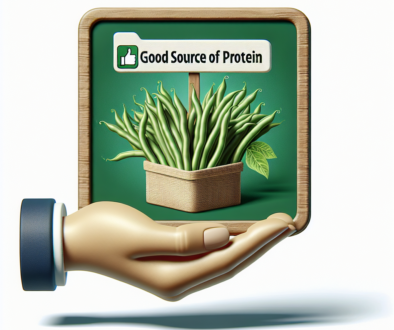Nutritional Labeling: Understanding Green Bean Packs
-
Table of Contents
- Nutritional Labeling: Decoding Green Bean Pack Information
- The Importance of Nutritional Labeling
- Understanding the Basics of Nutritional Labels on Green Bean Packs
- Case Studies: The Impact of Nutritional Labeling on Consumer Behavior
- Statistics: Nutritional Labeling and Health Outcomes
- Green Bean Packs: A Closer Look at Nutritional Content
- Regulatory Aspects of Nutritional Labeling
- Best Practices for Reading Nutritional Labels
- Conclusion: Empowering Consumers Through Nutritional Labeling
- ETprotein: Enhancing Your Nutritional Choices
Nutritional Labeling: Decoding Green Bean Pack Information

Nutritional labeling serves as a critical tool for consumers aiming to make informed food choices. With the increasing awareness of health and nutrition, understanding the information provided on food packages, such as green bean packs, has become more important than ever. This article delves into the intricacies of nutritional labeling, focusing on green bean packs, and provides insights into how consumers can interpret this information to make healthier dietary decisions.
The Importance of Nutritional Labeling
Nutritional labeling is not just a regulatory requirement; it is a vital source of information for consumers. It helps individuals understand the nutritional content of the food they are buying, which can guide them towards healthier eating habits. Labels contain information about calories, macronutrients, vitamins, minerals, and other essential dietary data that can influence consumer choices, especially for those with specific dietary needs or health goals.
Understanding the Basics of Nutritional Labels on Green Bean Packs
Green beans, also known as string beans, are a popular vegetable known for their rich nutritional profile. When purchasing packaged green beans, the nutritional label provides valuable insights into their health benefits. Here’s what you typically find on a green bean pack label:
- Serving Size: Indicates the amount of green beans that the nutritional information pertains to.
- Calories: Provides the energy content derived from one serving.
- Total Fat: Includes saturated fat, trans fat, and sometimes monounsaturated and polyunsaturated fats.
- Cholesterol: Important for those monitoring their heart health.
- Sodium: Essential for individuals watching their salt intake.
- Total Carbohydrates: Includes dietary fibers and sugars, both natural and added.
- Protein: Indicates the amount of protein per serving, crucial for muscle repair and growth.
- Vitamins and Minerals: Often includes Vitamin A, Vitamin C, Calcium, and Iron.
Understanding these components is the first step in making healthier choices when selecting green beans and other packaged foods.
Case Studies: The Impact of Nutritional Labeling on Consumer Behavior
Several studies have shown that nutritional labeling can significantly influence consumer behavior. For instance, research has indicated that clear and comprehensible labels can lead to better food choices among consumers. Another study found that labeling can also affect the sales of products, with healthier options showing increased sales when nutritional information is readily available and easily understood.
Statistics: Nutritional Labeling and Health Outcomes
Statistical data supports the notion that nutritional labeling can lead to improved health outcomes. For example, a survey conducted by the FDA found that 77% of American adults reported using the Nutrition Facts label when buying a product for the first time. Furthermore, countries that have implemented front-of-pack labeling systems have seen positive effects on public health, including reductions in the consumption of high-calorie and high-sodium foods.
Green Bean Packs: A Closer Look at Nutritional Content
Green beans are a nutrient-dense food, and their packaging reflects this. They are low in calories and fat but high in dietary fiber and protein. They also contain essential vitamins and minerals such as Vitamin K, Vitamin C, manganese, and folate. By examining the nutritional label on green bean packs, consumers can appreciate the health benefits these vegetables offer.
Regulatory Aspects of Nutritional Labeling
Nutritional labeling is governed by various regulations that ensure the information provided is accurate and helpful to consumers. In the United States, the Food and Drug Administration (FDA) sets the guidelines for nutritional labeling, including the format and content of the Nutrition Facts panel. These regulations are designed to standardize the information across all food products, making it easier for consumers to compare and make informed choices.
Best Practices for Reading Nutritional Labels
To make the most of nutritional labels, consumers should follow these best practices:
- Start with the serving size to understand how the nutritional values relate to the amount of food.
- Check the calorie content to manage energy intake.
- Look at the macronutrients (fat, carbohydrates, and protein) and aim for a balanced intake.
- Pay attention to the sodium content, especially if you have high blood pressure or are at risk of heart disease.
- Consider the fiber content, as a higher fiber intake is associated with numerous health benefits.
- Examine the vitamin and mineral section to ensure you’re meeting your daily nutritional needs.
By following these guidelines, consumers can use nutritional labels to choose foods that align with their health and dietary goals.
Conclusion: Empowering Consumers Through Nutritional Labeling
Nutritional labeling is a powerful tool that empowers consumers to make healthier food choices. By understanding how to read and interpret the information on green bean packs and other food products, individuals can take control of their diet and contribute to their overall well-being. The key takeaways from this article highlight the importance of serving size, calorie content, macronutrients, and micronutrients in making informed decisions about food purchases.
ETprotein: Enhancing Your Nutritional Choices
In addition to understanding nutritional labels, incorporating high-quality protein products into your diet can further optimize your health. ETprotein offers a range of organic bulk vegan protein and plant proteins that can complement your nutritional goals. Their products, including Organic rice protein, clear rice protein, pea protein, clear pea protein, pumpkin seed protein, sunflower seed protein, and mung bean protein, are non-GMO and allergen-free, making them suitable for a variety of dietary preferences.
Whether you’re involved in the food and beverage industry or simply looking to enhance your personal nutrition, ETprotein’s offerings can provide the protein boost you need. Their commitment to quality and taste ensures that you can enjoy the benefits of plant-based proteins without compromising on flavor.
About ETprotein:
ETprotein, a reputable protein Chinese factory manufacturer and supplier, is renowned for producing, stocking, exporting, and delivering the highest quality organic bulk vegan protein and plant proteins. They include Organic rice protein, clear rice protein, pea protein, clear pea protein, pumpkin seed protein, sunflower seed protein, mung bean protein, etc. Their offerings, characterized by a neutral taste, non-GMO, allergen-free attributes, cater to a diverse range of industries. They serve nutraceutical, pharmaceutical, cosmeceutical, veterinary, as well as food and beverage finished product distributors, traders, and manufacturers across Europe, USA, Canada, Australia, Thailand, Japan, Korea, Brazil, and Chile, among others.
ETprotein specialization includes exporting and delivering tailor-made protein powder and finished nutritional supplements. Their extensive product range covers sectors like Food and Beverage, Sports Nutrition, Weight Management, Dietary Supplements, Health and Wellness Products, and Infant Formula, ensuring comprehensive solutions to meet all your protein needs.
As a trusted company by leading global food and beverage brands and Fortune 500 companies, ETprotein reinforces China’s reputation in the global arena. For more information or to sample their products, please contact them and email sales(at)ETprotein.com today.












